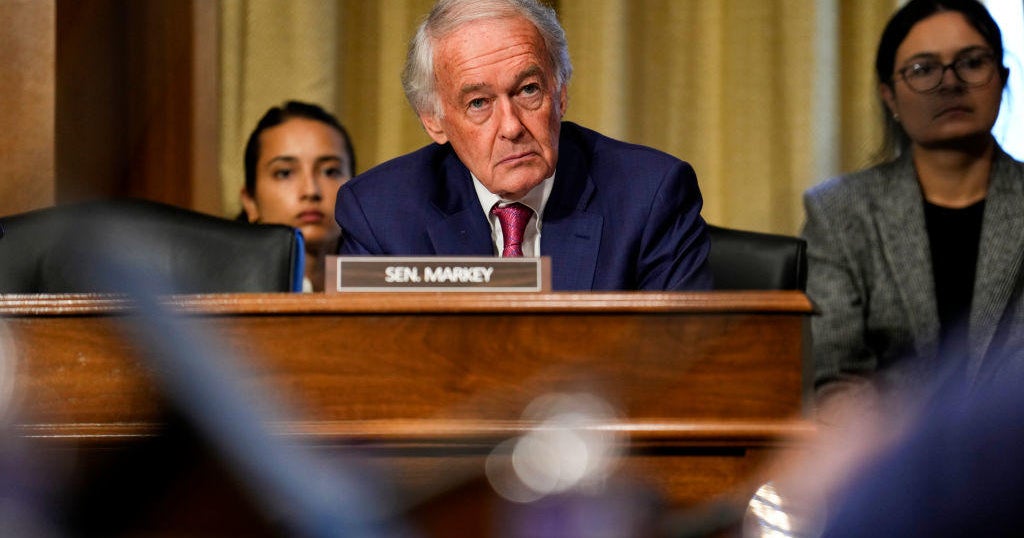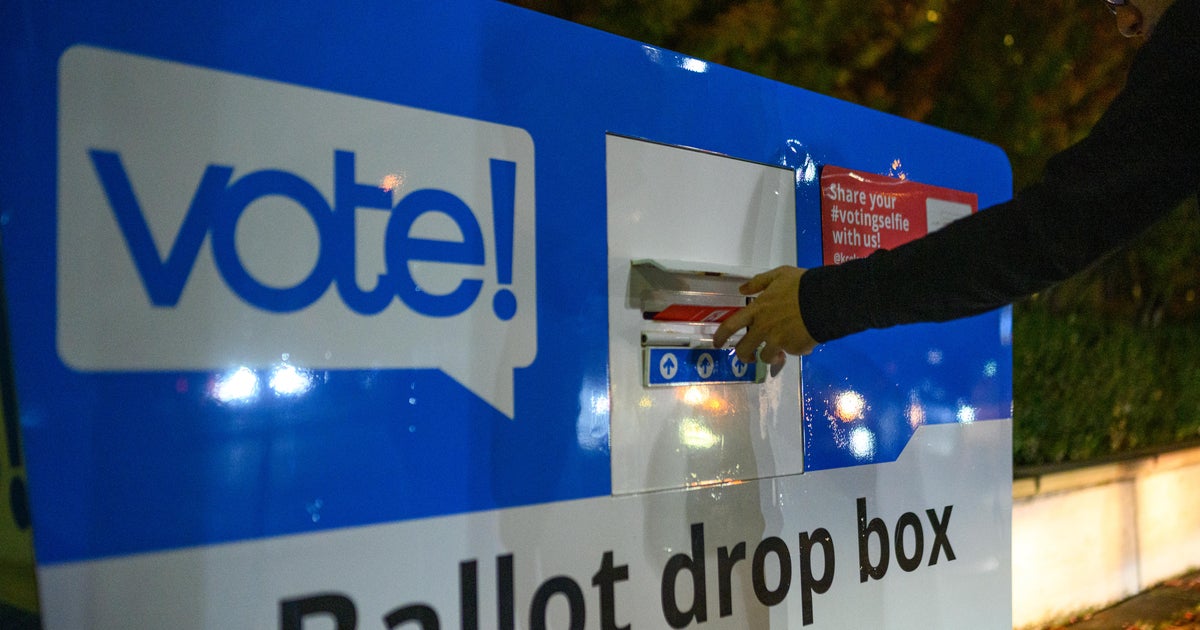Democrats chalk up big wins in government funding deal
Democrats scored some major victories despite their position in the minority in the bipartisan agreement reached late Sunday on legislation that would fund the government through September.
The $1.1 trillion omnibus spending package, for example, does not fund President Trump's planned wall along the U.S.-Mexico border, funding for Planned Parenthood is included and the deal would provide the National Institutes of Health (NIH) with a budget boost, rather than the $1.2 billion cut that the White House proposed.
Part of the administration's "skinny budget" submitted to Congress in March requested $18 billion in cuts to non-defense domestic programs as well as $3 billion in border security funding. None of the $18 billion in cuts is fulfilled in the deal, according to a senior congressional aide, though Republicans have touted cuts that were already built into their appropriations bills. Of the $3 billion requested for border security, the measure would provide $1.5 billion.
Lawmakers are expected to vote on the comprehensive deal by Friday night, before government funding expires. It would keep the government funded through Sept. 30. Vice President Mike Pence told "CBS This Morning" on Monday that the president signed off on the parameters of the deal on Sunday, before negotiators put on the finishing touches.
Senate Minority Leader Chuck Schumer, D-New York, said Sunday it's a "good agreement for the American people and takes the threat of a government shutdown off the table." Speaker Paul Ryan, R-Wisconsin, said Monday morning that the country will be "stronger and safer because of this government funding bill."
Here are some of the major highlights, and the winners and losers:
No border wall funding
The White House dropped its demand last week to include funding for a border wall in the package after Democrats made clear that they'd oppose any bill that includes it. Republicans need 60 votes in the Senate to advance the package to a final vote, which they can't do without Democrats. The bill would allot $772 million to Customs and Border Protection for the maintenance and improvements to existing infrastructure, an increase in hiring of border patrol agents and new technology.
While the measure excludes wall funding, it requires the administration to craft a plan to improve border security that includes "personnel, fencing, other forms of tactical infrastructure and technology." If enacted, after three months, the package also requires the Homeland Security secretary to deliver a "detailed implementation schedule" for the next five fiscal years that points to "planned locations" of "fencing" or "other physical barriers."
There are also no federal spending cuts to "sanctuary cities," which protect undocumented immigrants who might otherwise be deported by federal immigration law enforcement officials.
Boost to the Pentagon
The president lost out on a number of key domestic areas, but his big win is a $25 billion spending increase for the U.S. military over the 2016 level. The bill includes more than $76 billion for the Pentagon's war fund, known as the overseas contingency operations (OCO) account, used for operations overseas such as those against the Islamic State in Iraq and Syria (ISIS).
The measure, however, withholds $2.5 billion of war-related funding until Mr. Trump submits his comprehensive plan to defeat ISIS to Congress, according to a summary prepared by Democrats. It said, "The plan shall include benchmarks for progress in defeating ISIS and directs the secretary of defense and secretary of state to provide quarterly updates to Congress."
It also directs the president to submit a report to Congress on the administration's policy toward Syrian President Bashar al-Assad's regime and a "strategy to address the suffering of the civilian population of Syria." This follows the president's decision to authorize missile strikes against the regime after it launched a deadly chemical attack against its own people.
Republicans say the legislation rejects the proposed troop reductions from the Obama administration and instead provides funds that would cover an additional 1,000 active-duty soldiers for the Army, 1,000 Army National Guard soldiers, 1,000 active-duty Marines and 1,000 Army Reserve soldiers.
Domestic programs saved from severe cuts
The administration had asked in March for $18 billion in cuts for domestic programs, but as CBS News reported earlier this month, they were expected to be ignored in the deal. But rather than cutting, the senior congressional aide said the funding levels for domestic programs would actually increase under the bill. The NIH would receive a $2 billion increase over 2016 spending levels, which prioritizes funding for research related to the brain, antibiotic resistance, Alzheimer's Disease and the Precision Medicine Initiative.
Even though Mr. Trump called for a 31 percent funding cut to EPA in his March budget for 2018, negotiators decided to only cut 1 percent from its budget for 2017. The spending package cuts $80 million from the agency's $8 billion budget, which Democrats couched as 99 percent of EPA's budget being protected. Republicans, on the other hand, pointed out that it rejects proposed staffing increases from Obama and maintains staffing at 15,000 positions, which they said is the lowest in nearly 30 years. Originally, Republicans had proposed slashing up to $200 million from the EPA.
Obamacare and Planned Parenthood
Democrats cheered the fact that the package continues funding to Planned Parenthood, which provides services for women's health. Federal funding is barred for abortions, and besides, Republicans said that budget reconciliation is the better avenue for its long-held desire to defund the organization. In 2015, their efforts to defund the group almost led to a government shutdown.
Republicans and Democrats had argued over Obamacare's cost-sharing payments, which subsidize insurers to help them keep health care costs lower for poorer consumers. The appropriation for the payments comes from the White House, and the president has threatened to stop the payments. During the Obama administration, the GOP-controlled House sued the White House, arguing that the Executive Branch doesn't have the right to appropriate funds. Democrats had wanted Congress to fund the payments. This fight ends in a draw -- Congress will not be making the payments, and the White House will continue to appropriate the funds.
Reimbursing police for Trump security
Since the election, Democrats have called on the GOP majority to reimburse the New York Police Department (NYPD) for the costs incurred for protecting the president during the transition period at Trump Tower in Manhattan. This is another item they won in the spending deal, which totals $61 million that will be reimbursed to any local law enforcement agency, including in Florida, that has protected the president-elect, president and the rest of the first family.
Cybersecurity improvements
In the wake of Russia's cybersecurity attacks during the 2016 election, the measure includes funding boosts to the Department of Homeland Security's National Protection and Programs Directorate that protects networks from cyberattacks, espionage and data theft. The extra money is targeted for diagnostics and mitigation, intrusion detection on civilian federal networks and cybersecurity education.
Health benefits extended for coal miners
Lawmakers reached a deal to permanently fund health benefits for retired coal miners "orphaned" by the bankruptcy of their mining companies. About 22,600 coal miners and their families were at risk of losing their their health care benefits at the end of April, though Congress last week extended them until this Friday.
Miscellaneous
Democrats were also pleased about blocking what they call "poison pill" provisions that Republicans were pushing. They were able to head off the inclusion of one rider that that would have affected the FDA's final rule on menu labeling, another that would have restricted travel and transactions with Cuba, and one more that would have strengthened states' rights, they said, in light of North Carolina's HB-2 law. Meanwhile, Republicans maintain the provision that prevents funding from being used to house, release or transfer detainees housed at the Guantanamo Bay detention facility.
If Congress is able to pass the omnibus this week, the next spending showdown is expected this fall, since they'll need to pass a new package by Oct. 1. Lawmakers will likely have to strike a budget deal to lift spending caps put in place by a 2011 law and then find a way to address raising the debt ceiling.




